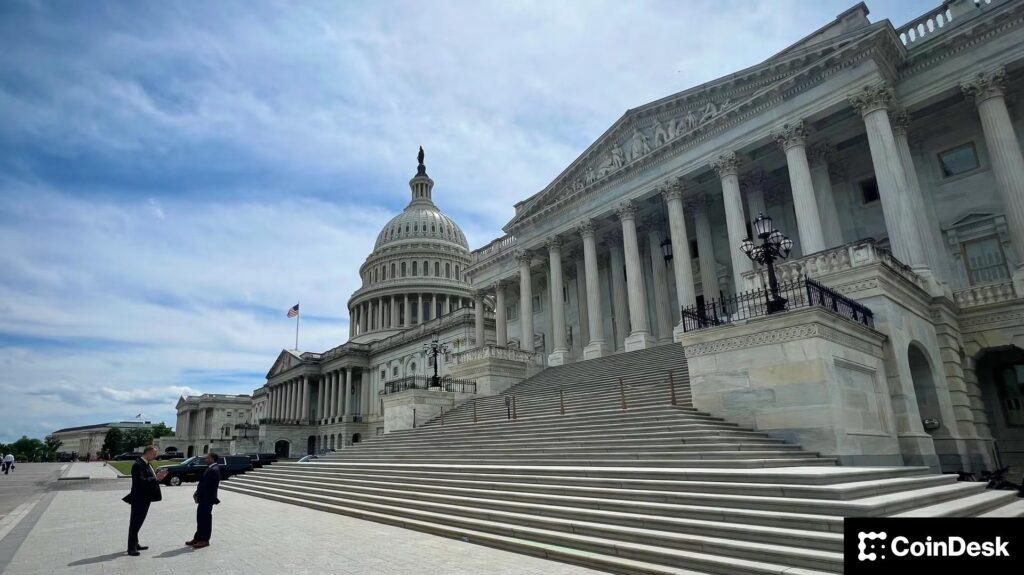Although the US government remains shut down, the Senate is a hive of crypto activity this week, with Republican lawmakers now matching a planned Democratic meeting with industry leaders set for Wednesday.
After CEOs like Coinbase’s Brian Armstrong and Chainlink’s Sergey Nazarov meet with as many as 10 Democratic senators, they will jump to a similar meeting with those lawmakers’ Republican counterparts, according to people familiar with the plans. The main topic of conversation is the crypto industry’s top policy priority: the legislation that would establish US regulation of the broader crypto sector.
The bill — known in the version already approved by the House of Representatives as the Digital Asset Market Clarity Act — had advanced through the usual process in the Senate, where legislative efforts generally have to lean into bipartisanship to clear the 60-vote threshold. Republicans on the Senate Banking Committee produced a working draft, but Congress then became mired in a budget dispute that shut down the government.
And possibly more importantly, a document showing proposed Democrats’ language on decentralized funding was leaked, causing an uproar from industry insiders who framed it as a potential deal-breaker in the negotiations.
So Senate Democrats and industry leaders arranged a Wednesday meeting to hash things out. And now Republicans want to hear from them, too. At the second meeting, the industry’s GOP allies are likely to get an indication of what points the CEOs were told by Democrats they are encouraging to move.
Industry leaders involved in these meetings are said to include the heads of Kraken, Uniswap, Galaxy Digital, Solana Policy Institute and executives from Circle, a16z Crypto and Jito.
A prevailing view of many crypto lobbyists is that it would be difficult to get the market structure bill back on track this year, and next year’s midterm elections could make any serious policy effort difficult. Without this legislation becoming law, the sector is only halfway to adopting its policy goals in the US, after celebrating an initial major success with a new law to regulate stablecoin issuers.
And until Congress can reopen the government’s doors, lawmakers’ main focus remains on the budget dispute.
Returning to their crypto work, the Republican allies of crypto have a significant number of like-minded Democrats across the aisle who are ready to approve major crypto legislation. But Democrats had raised a number of issues to work on, including consumer protections, concerns about illegal financing and conflicts of interest presented by top officials who engage in the industry — particularly President Donald Trump.
Both the Senate Banking Committee and the Senate Agriculture Committee must draft and approve the legislation before it can receive a floor vote in the full Senate. The Agriculture Committee has not yet published any legislative proposals.
“Any viable policy must be bipartisan,” Blockchain Association CEO Summer Mersinger said in a statement sent to CoinDesk on Monday, stressing that both parties must be on board.
Approval in the Senate would send it to the House for a similar vote. That chamber had already approved the Clarity Act by an overwhelming majority, and some senior members of the House have argued that the Senate could skip a lot of headaches by simply voting on the House Clarity Act and sending it directly to Trump.
Read more: Crypto’s unfinished legislative agenda tilts as CEOs meet with Democrats



